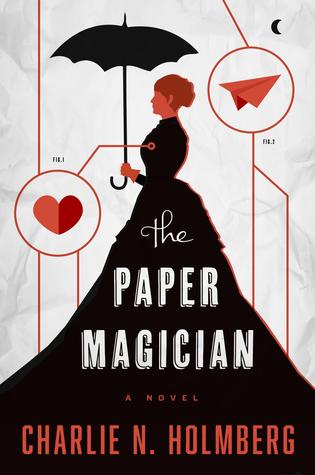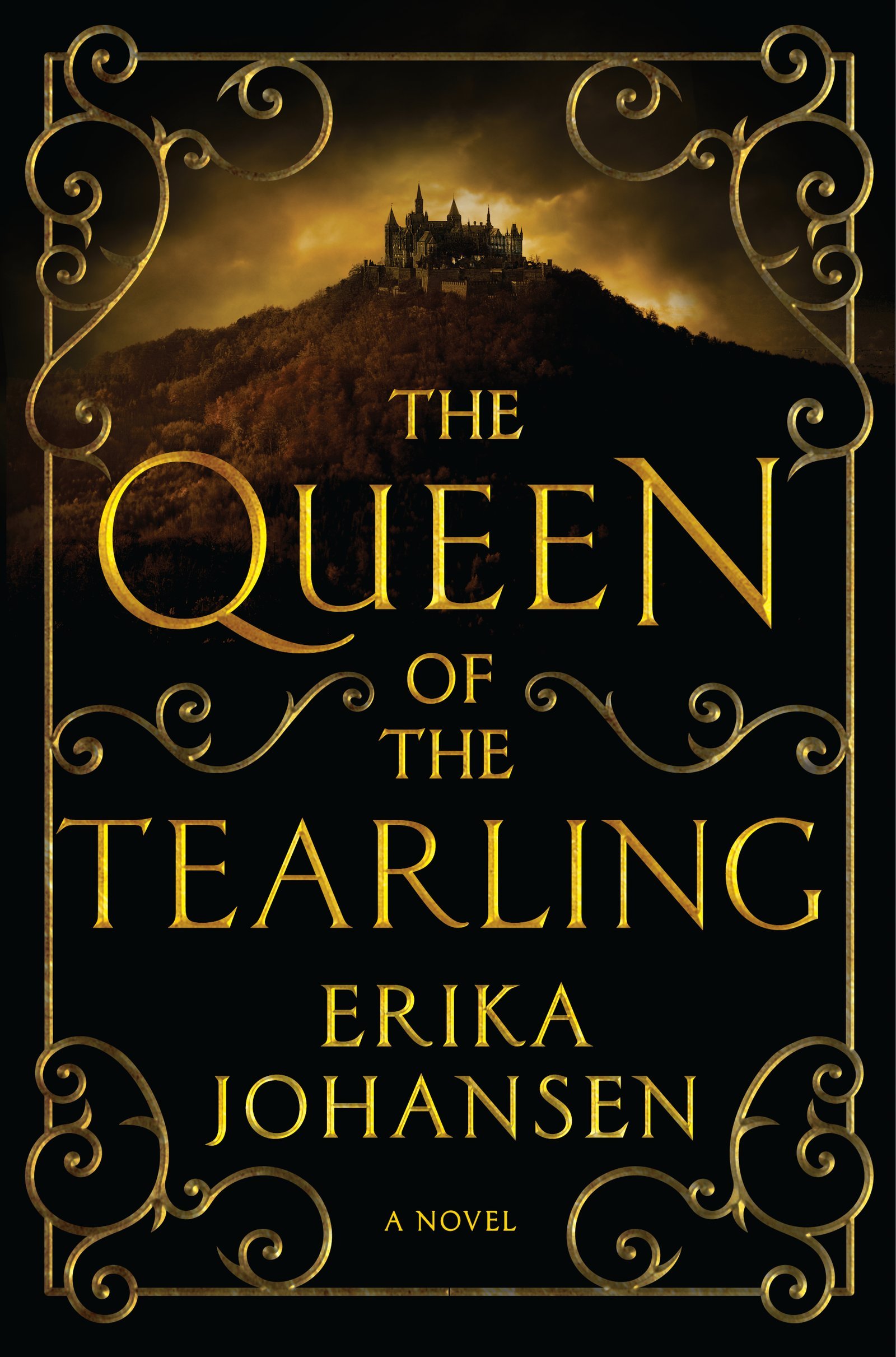The Cottingley Secret by Hazel Gaynor
This is one of those books that explores a historical event---in this case, one that happens to be true---from the perspective of a present day woman exploring her past and coming to terms with her life. The historical event is the photographing of fairies by Frances Griffiths and her cousin Elsie Wright in Cottingley. Starting in the early 1920s, Frances and Elsie sparked worldwide interest and debate regarding both whether fairies are real and, in any case, whether they'd in fact been photographed by the girls. This book considers the perspective of Frances in the form of a memoir read by someone (Olivia) in present time. (Exactly 100 years after Frances first saw the fairies in 1917.)
 Olivia is a young woman who has just lost her grandfather and is attending his funeral in Ireland. He has left her the memoir in his passing, along with his house, his bookstore, the care of her grandmother with Alzheimer's, and some debt that he'd failed to mention. Olivia unfortunately has a bit of a jerk of a fiancé back in London and a life there that she's increasingly interested in abandoning.
Olivia is a young woman who has just lost her grandfather and is attending his funeral in Ireland. He has left her the memoir in his passing, along with his house, his bookstore, the care of her grandmother with Alzheimer's, and some debt that he'd failed to mention. Olivia unfortunately has a bit of a jerk of a fiancé back in London and a life there that she's increasingly interested in abandoning.As Olivia reads the memoirs to herself and her grandmother, she learns more about what matters and what is really important in life, not to mention the Cottingley secret and perhaps even a snippet of her own ancestry.
It was an interesting story, well told and pretty well paced. I often didn't love Gaynor's use of metaphor -- what others have found poetic, I have found clunky and oddly cliched (the metaphors seemed to highlight the cliched feelings/thoughts in their attempt to obfuscate them). I also found some of the contradictions annoying (the biggest one being that the memoir was left for Olivia in a package from her grandfather, as noted in the beginning, and discovered by Olivia in the store after is passing, as stated about halfway through). But overall, despite these hitches, I still found the book enjoyable and interesting. I also thought Gaynor did a great job with the family dynamics and reveals. I almost found Olivia's story more interesting than Frances... it was nice that the story (Olivia's) created for the purpose of exploring a different story (Frances) was independently interesting and engaging.
So all in all, some history, light romance, fairies, family and self discovery, and a quaint Irish seaside town made for an enjoyable read.
Rounded up to FOUR of five stars.
You'll Never Know,
Dear by Hallie Ephron
 I really enjoyed reading this book. It wasn't quite what I was expecting. I was expecting something extra creepy and maybe in the horror camp. This was more suspense, maybe a little lite-horror, some relationship building, and just good story-telling.
I really enjoyed reading this book. It wasn't quite what I was expecting. I was expecting something extra creepy and maybe in the horror camp. This was more suspense, maybe a little lite-horror, some relationship building, and just good story-telling.It's called "A Novel of Suspense," and I would agree with that. Even though you may (I did) "figure it out" really early in the novel, it still reads really well and still creates a tension and a suspenseful feeling as you quickly turn the pages to find out if you're right, *how* you're right (or wrong), *why* you're right (or wrong), and most of all, how it all resolves anyway.
I love the creepy doll backdrop and I enjoyed the different perspectives from which the book is told. Although I am not always a fan of the back and forth, and certainly not when such perspective is used for convenience, in this book, it really just worked. It was a quick and definitely enjoyable read for me, and I easily recommend to those who are looking for a quick, rainy-day read. A strong FOUR stars!
Hounds of the Underworld by Dan Rabarts
I received this book in e-book format. The only e-book specific complaint I had was the font kept on switching back and forth between font-sizes. It was distracting, but not so much that I couldn't enjoy the story.
 First, I would not compare this book or its characters with Sherlock... the analysis and personality just do not match. This is a book set in the not-too-distant future (in New Zealand!) about a young (20s?) headstrong girl (Pandora (Penny)) who wants to be a scientist, darnit, even if her wealthy parents think it's a silly career for a girl to have, and her mess-up brother (Matiu) (30s?) who maybe interacts with people or things that aren't there. She is on an assignment from the police (to be a scientific consult) with her brother as her driver (literally... he's essentially her personal taxi, ordered by their parents who own the taxi company) when Matiu has a foreboding flash that causes him to scream and urge his sister to not get involved with the case. Of course she does. Did I mention she's headstrong? Headstrong never heed good advice in modern literature.
First, I would not compare this book or its characters with Sherlock... the analysis and personality just do not match. This is a book set in the not-too-distant future (in New Zealand!) about a young (20s?) headstrong girl (Pandora (Penny)) who wants to be a scientist, darnit, even if her wealthy parents think it's a silly career for a girl to have, and her mess-up brother (Matiu) (30s?) who maybe interacts with people or things that aren't there. She is on an assignment from the police (to be a scientific consult) with her brother as her driver (literally... he's essentially her personal taxi, ordered by their parents who own the taxi company) when Matiu has a foreboding flash that causes him to scream and urge his sister to not get involved with the case. Of course she does. Did I mention she's headstrong? Headstrong never heed good advice in modern literature.Anyway, because she insists on working the case, he insists on helping her. I believe he's supposed to be the "Sherlock" comparison -- grumpy, but notices things that other people miss? Though he's apparently very handsome and charming when he wants to be. He's described such that I sort of picture a slightly buffer, slightly rougher version of Joel McHale.
So there's danger and supernatural and science and police and detective elements. It was enjoyable and I definitely wanted to keep reading to find out what happened next and how it concluded. And I was not necessarily disappointed in the conclusion either. I just found it, overall, a bit unpolished. It reads a bit like a gritty sketch of something more than a novel. And while that sort of works with the type of story, I felt it could use a bit *more* polishing.. maybe not too much, but a little bit more. I do anticipate that this series will settle into itself, though. Since this is the first, there are generally a few kinks to work out. I'd be open to the next ...
THREE AND A HALF of five stars.
These Vicious Masks by Tarun Shanker
Review based on audio CD.
I've often said that a reader can make or break a book... sometimes, however, the reader isn't your favorite, but the story withstands it. This was one of those instances. The reader for this book stated essentially every non-dialog sentence archly (and a fair number of the dialog sentences too). It was irritating and distracting. Although I understand the main character, and maybe a couple others, were supposed to be, I don't know, sardonic or sarcastic or whatever would naturally result in their thought process coming across that way... it just just fell awkwardly when every single sentence was phrased that way. And I know the reader *could* read in other ways because dialog was read more naturally (except for the more "arch" characters), so I'm not sure why she made the decision. But it was weird.
 Nonetheless, the story was interesting enough that I kept listening and eventually *largely* became accustomed to the reading style. I was so into the story, in fact, that I checked out the e-version from the library so I could get through it faster (flipping back and forth between the e-version and the audio version)! (That's one of the down-sides to listening to audio on CD -- you can't speed up the reading to 1.5x speed, which is how I listen to most books.)
Nonetheless, the story was interesting enough that I kept listening and eventually *largely* became accustomed to the reading style. I was so into the story, in fact, that I checked out the e-version from the library so I could get through it faster (flipping back and forth between the e-version and the audio version)! (That's one of the down-sides to listening to audio on CD -- you can't speed up the reading to 1.5x speed, which is how I listen to most books.)It is about a young girl (I believe she is seventeen), Evelyn, whose sister Rose is taken by some unsavory characters and Evelyn's seeking her sister in order to rescue her -- aided in large part by two men who she may or may not have a romantic interest in... or vice versa. I know, teen love/teen triangles. Normally very eye-roll worthy. But it was actually okay for me in this one -- maybe because I liked the rest of the story. And sure, I thought the triangle-aspect was ... confusing and ... contrived. As I usually do. But it wasn't enough to put me off of the rest of the story. And I clearly thought there was one "worthy" contender here, but a triangle can't exist without a second, right?
Aaaaanyway. I don't want to spoil the story, so I won't say much. But there is fun in the discovery of things, in the interpersonal relationships other than the love-triangle, even in some of the relationship development within the triangle, and in the figuring it all out. I will add that there is a "supernatural" element to it all ... though it is "based" in science. I like that sort of thing. I enjoy new explanations for made-up things. :) Overall, FOUR of five stars. Definitely will read (or listen to!) the next in the series!
































